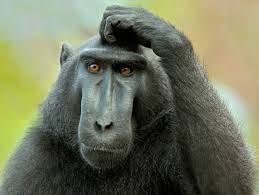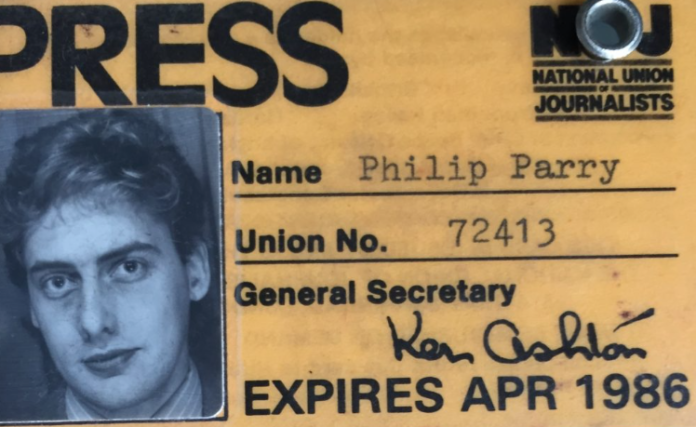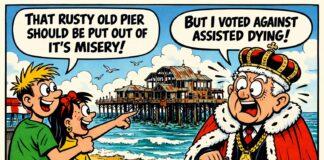- Death wish two - 2nd March 2026
- News to celebrate! - 1st March 2026
- Bombs away! - 28th February 2026

During 23 years with the BBC, and 40 years in journalism (when he was trained to use simple language, avoiding jargon), our Editor Welshman Phil Parry has made numerous mistakes, some of which have been during live broadcasting (as have others), but lessons were always learnt.
Earlier Phil has described how he was helped to break into the South Wales Echo office car when he was a cub reporter, recalled his early career as a journalist, the importance of experience in the job, and making clear that the‘calls’ to emergency services as well as court cases are central to any media operation.
 He has also explored how poorly paid most journalism is when trainee reporters had to live in squalid flats, the vital role of expenses, and about one of his most important stories on the now-scrapped 53 year-old BBC Wales TV Current Affairs series, Week In Week Out (WIWO), which won an award even after it was axed, long after his career really took off.
He has also explored how poorly paid most journalism is when trainee reporters had to live in squalid flats, the vital role of expenses, and about one of his most important stories on the now-scrapped 53 year-old BBC Wales TV Current Affairs series, Week In Week Out (WIWO), which won an award even after it was axed, long after his career really took off.
Phil has explained too how crucial it is actually to speak to people, the virtue of speed as well as accuracy, why knowledge of history and teaching the subject is vital, how certain material was removed from TV Current Affairs programmes when secret cameras had to be used, and some of those he has interviewed.
He has disclosed as well why investigative journalism is needed now more than ever although others have different opinions, how the coronavirus (Covid-19) lockdown played havoc with media schedules, and the importance of the hugely lower average age of some political leaders compared with when he started reporting.

You learn from your mistakes – or at least that’s what’s meant to happen.
Sometimes, though, the lessons are difficult to see at the time – and they only become apparent AFTERWARDS.
For example once when I was presenting the BBC Cymru Wales (BBC CW) Good Evening Wales programme, I started a long question with no idea whatsoever how I should end it, so my question was complete gibberish.


If the interviewee had said: “I have absolutely no idea what you just said there…”
I would have had to have responded: “Nor have I!”.
In fairness to him, he answered my PREVIOUS question!! From this I learnt that you should always prepare well.
During live interviews (whether in studio or ‘down the line’ in another one) you would have to introduce people (“I am now joined by…etc.), as well as ‘back-link’ them (“That was…etc.).

I am, however, notoriously bad at remembering people’s names, and on one occasion I actually forgot the interviewee’s name DURING an interview, so I couldn’t do the back-link.
It was on radio, not television, and the person was being interviewed remotely down the line, so I was able to ask the producer on ‘talk-back’ during an answer: “Who is this?!”.
In another instance I forgot the sports presenter’s name.

I had to hold up a piece of paper (again this was radio) which read: “WHO ARE YOU?” because the microphones were live and anything that was said would have gone out on air.
This was a lesson in thinking hard to make sure you remembered people’s names, and in my defence there were so many people coming in and out of studio during the broadcast, that you often had no idea who they were.


But it wasn’t just me.
One producer said through my headphones when I was presenting a live programme: “Phil, it’s very important you know that the next item…”. Silence.
I was beside myself with panic.
‘Was the next item actually there?!’ ‘If I introduce it and press the button will there be dead air?!’, I thought anxiously.

He never (as far as I know) had to deal with another presenter who was one of those that opened her mouth and words fell out, so she had no idea what she was actually saying.
I clearly remember her getting in an embarrassing tangle when she closed a BBC Cymru Wales Today (WT) transmission, on a Friday evening before a long weekend, with a Bank Holiday on the Monday.
What she WANTED to say was: “I hope you have a good, long Bank Holiday weekend”.

What in fact she said was: “Have a good wank, and I hope it’s a long one…”!
Her mistake (I feel for her) was easy to make, although she was known for her errors, and it came to mind when I heard Colin Murray on BBC Five Live recently saying: “The RSPB – that’s the Royal Society for the Prevention of Birds in England”…
The perils of live broadcasting!
The memories of Phil’s astonishing decades-long award-winning career in journalism (during which he always tried to learn from his mistakes) as he was gripped by the rare disabling condition Hereditary Spastic Paraplegia (HSP), have been released in a major book ‘A GOOD STORY’. Order it now!

Regrettably publication of another book, however, was refused, because it was to have included names.










